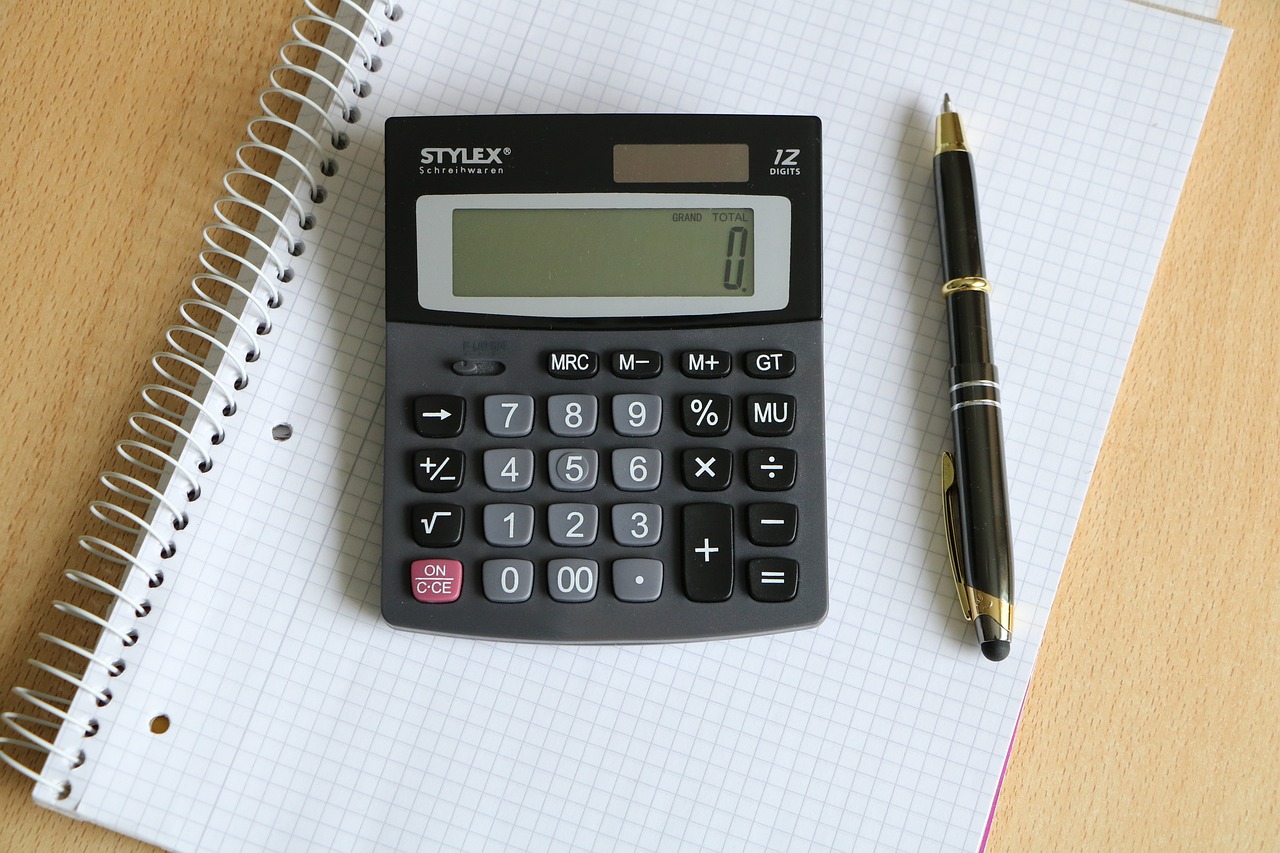Why You Should Budget for Your Personal Finances

Planning for personal finances can be a challenge for many people. Unexpected debt, expenses, and the struggle to save can leave you feeling drained. Creating a personal budget is a practical solution that can help you take control of your finances and work toward your goals. In this article, we’ll explore why budgeting is essential and how it can improve your financial situation.
1. Budgeting Helps You Set and Achieve Your Life Goals
A personal budget helps you identify and work toward your life goals, whether long-term or short-term. By clearly outlining your financial objectives, you can allocate money each month toward these goals. For instance, if you want to go on a trip, you can calculate how much you need to save and set a timeline. Tracking your progress makes it easier to stay focused and motivated.
Moreover, budgeting helps you break down large goals into small, manageable steps. Instead of feeling overwhelmed by a big purchase, you can save a little each month. With each milestone you reach, like saving a certain amount, you’ll feel a sense of accomplishment that encourages you to keep going. Budgeting turns your dreams into actionable steps, helping you achieve what truly matters to you. It also allows you to adjust your goals as life changes, ensuring that your financial plans stay relevant.
Quick Takes:
- Set clear financial goals, both short-term and long-term.
- Allocate money each month toward your goals.
- Track your progress to stay focused and motivated.
2. Budgeting Helps You Control Your Spending
When you create a budget, you gain a clear understanding of where your money goes. This awareness helps you spot areas where you might be overspending. For instance, you may discover that you spend too much on dining out or subscriptions. With a budget, you can prioritize your needs over wants, allowing you to make smarter financial choices.
Controlling your spending also means being mindful of your habits. For example, if you find yourself frequently buying coffee on the way to work, you can choose to brew coffee at home instead. Small changes like this can add up over time, freeing up money for more important expenses. Budgeting helps you establish spending limits for different categories, making it easier to stick to your financial plan.
Quick Takes:
- Identify where your money is going.
- Spot areas of overspending (e.g., dining out, subscriptions).
- Prioritize needs over wants for smarter financial choices.
3. Budgeting Prepares You for Emergencies

Life can throw unexpected challenges your way. A budget allows you to set up an emergency fund, giving you a financial cushion for sudden expenses like medical bills or car repairs. This preparation helps you face emergencies without financial strain. By saving even a small amount each month, you can build an emergency fund that provides peace of mind, knowing you have money set aside for the unexpected.
Having an emergency fund can also help you avoid going into debt when crises arise. Instead of relying on credit cards or loans, you can use your savings to cover costs. This approach not only helps you manage emergencies but also keeps you from falling into a cycle of debt. Setting a specific goal for your emergency fund, such as three to six months’ worth of living expenses, can guide your savings efforts.
Quick Takes:
- Set up an emergency fund for unexpected expenses.
- Avoid using credit cards or loans in emergencies.
- Save a small amount monthly to build a financial cushion.
4. Budgeting Keeps You Out of Debt
Debt can feel overwhelming, but budgeting can help you avoid it. By tracking your expenses and sticking to your budget, you can prevent impulsive spending. If you already have debt, a budget can help you create a plan to pay it off while managing your other expenses. This approach allows you to allocate extra funds toward debt repayment, reducing the interest you pay over time and helping you become debt-free more quickly.
Additionally, budgeting encourages you to be mindful of how you use credit. Instead of swiping your card without thinking, you’ll consider whether the purchase fits within your budget. By being intentional about your spending, you can limit your reliance on credit and make more informed choices. This discipline helps you break the cycle of debt and work toward financial freedom.
Quick Takes:
- Track and limit impulsive spending.
- Create a debt repayment plan while managing other expenses.
- Allocate extra funds toward debt repayment to reduce interest.
5. Budgeting Helps You Boost Your Savings
A good budget encourages saving. By allocating a specific amount to savings each month, you develop a habit that leads to more financial security. Whether saving for a trip or retirement, budgeting helps you reach your goals more effectively. You can set up automatic transfers to your savings account, making saving easier and less tempting to spend. Watching your savings grow can be rewarding and motivate you to keep going.
In addition, budgeting allows you to identify different savings goals. You can create separate categories for short-term savings, like a vacation, and long-term savings, like retirement. This organization helps you stay focused on multiple goals at once. By celebrating small achievements along the way, you can maintain your motivation and make saving a priority in your life.
Quick Takes:
- Set up automatic transfers to your savings account.
- Allocate specific amounts to savings monthly.
- Identify separate goals for short-term and long-term savings.
6. Provides Early Warnings for Potential Challenges

Regularly reviewing your budget can alert you to potential financial issues before they become serious. If you notice spending trends that could lead to trouble, such as consistently overspending in a category, you can adjust your habits early on, helping you stay on track. This proactive approach allows you to make changes before financial problems arise, ensuring you remain in control of your finances.
Additionally, being aware of your budget can help you expect changes in your financial situation, such as a job loss or increased expenses. By recognizing these trends early, you can prepare accordingly. This might involve cutting back on non-essential spending or boosting your emergency fund to cover any potential gaps in income.
Quick Takes:
- Spot potential financial issues (e.g., overspending).
- Adjust spending habits before problems arise.
- Prepare for changes in income or expenses.
7. Budgeting Reduces Financial Stress
Money concerns can cause significant stress. A budget gives you a clear view of your finances, helping you feel more in control. Knowing exactly how much you have and where it’s going can ease anxiety and create a sense of security. Instead of worrying about bills or expenses, you can focus on your goals and enjoy life more. This reduced stress can improve your overall well-being and help you feel more confident in your financial decisions.
Moreover, a budget can serve as a roadmap, guiding your financial journey. When you have a plan in place, you can approach your finances with greater confidence. This sense of control can lead to better mental health, allowing you to focus on other important aspects of your life, such as relationships and personal growth.
Quick Takes:
- Know exactly how much you have and where it’s going.
- Ease anxiety related to bills or unexpected expenses.
- Focus on your financial goals and enjoy life more.
8. Budgeting Promotes Healthy Financial Decisions
With a budget, you’re less likely to make impulsive purchases. By understanding your financial situation, you can make thoughtful decisions that align with your goals, leading to healthier spending habits. For example, if you know you have limited funds for entertainment, you might choose free or low-cost activities with friends instead of costly outings. This mindfulness helps you prioritize what truly matters and avoids buyer’s remorse.
In addition, budgeting encourages you to think critically about your purchases. Before buying something, you can ask yourself if it fits within your budget and if it’s truly necessary. This habit can prevent regret and promote more fulfilling purchases, ensuring that your spending aligns with your values and goals.
9. Budgeting Guarantees You a Happy Retirement

Planning for retirement is crucial, and a budget plays a key role. By consistently saving a portion of your income, you can build a nest egg that supports a comfortable retirement, allowing you to enjoy your golden years without financial worry. Starting early, even with small amounts, can make a big difference over time due to compound interest. Regularly reviewing your retirement goals can also help you adjust your savings as needed.
Furthermore, budgeting allows you to envision your ideal retirement lifestyle. By considering what you want to do in retirement—traveling, spending time with family, or pursuing hobbies—you can determine how much you need to save. This clarity can motivate you to stay disciplined with your budget and focus on your long-term goals.
10. Helps You Know Where to Make Adjustments
Life changes, and your budget should, too. Regularly reviewing your finances helps you spot when adjustments are needed, whether due to changes in income, expenses, or personal goals. For example, if you get a raise, you can decide to increase your savings or pay off debt faster. This flexibility keeps you on track and ensures that your budget reflects your current situation and priorities.
Additionally, if you encounter unexpected expenses, such as a home repair, your budget can help you identify areas where you can cut back temporarily. This adaptability allows you to manage changes without derailing your overall financial plan, keeping you on the path to success.
11. Determines Potential Financial Support Needed
A budget can highlight areas where you may need assistance. Whether it’s for education, healthcare, or housing, knowing your financial situation enables you to seek help when necessary, ensuring you have support when challenges arise. For instance, if you realize you need help with childcare costs, you can look for local programs or resources that provide assistance, making it easier to manage your budget.
Moreover, understanding your budget can help you identify opportunities for additional financial support, such as scholarships for education or government assistance programs. Being aware of these options empowers you to make informed decisions and seek help when you need it.
12. Budgeting Draws Families Together

Budgeting can be a family effort, encouraging communication about money. Involving everyone in the budgeting process can strengthen family bonds as you work together to achieve common financial goals, fostering teamwork and understanding. For example, having regular family meetings to discuss finances can help everyone feel included and teach children valuable lessons about money management.
Additionally, budgeting as a family allows you to set shared goals, such as saving for a family vacation or a new car. Working together to achieve these goals fosters a sense of unity and teaches important lessons about cooperation, responsibility, and planning for the future.
13. Budgeting Helps You Get Extra Money
A budget can reveal opportunities to increase your income. By finding areas to cut costs, you can free up money for savings or invest in side hustles that provide extra cash. This proactive approach enhances your financial freedom. Additionally, tracking your expenses may inspire you to look for part-time work or freelance opportunities that fit your schedule and skills, boosting your income.
Moreover, budgeting helps you recognize your strengths and interests, allowing you to pursue side gigs that align with your passions. Whether it’s tutoring, freelance writing, or selling crafts, budgeting gives you the foundation to explore new income streams and maximize your financial potential.
14. It Promotes a Positive Relationship with Money
Developing a budget can improve how you view money. Instead of seeing it as a source of stress, budgeting helps you appreciate your financial resources and make informed choices that reflect your values. This shift in mindset can lead to more positive financial behaviors and a greater sense of control over your spending and saving habits.
Additionally, a positive relationship with money can encourage gratitude for what you have. By budgeting, you can focus on your priorities and make choices that align with your values, leading to a more fulfilling life. This approach fosters a sense of abundance rather than scarcity, helping you approach your finances with a healthier mindset.
15. Budgeting Fosters Discipline and Accountability
Sticking to a budget requires discipline, which can benefit you in many areas of life. This commitment fosters better financial habits and helps you become more responsible, leading to long-term success. By holding yourself accountable for your spending choices, you develop self-control that can positively impact your relationships and career as well.
Moreover, the skills you develop through budgeting—like goal-setting, planning, and monitoring progress—can translate to other areas of your life. Whether in your career or personal relationships, the discipline you cultivate through budgeting can lead to greater achievements and satisfaction.

In Summary, budgeting is important in the following ways:
- It enables you to set and achieve your life goals
- It helps you control your spending
- It prepares you for emergencies
- Budgeting keeps you out of debt
- It helps you boost your savings
- Provides early warnings for potential challenges
- Budgeting reduces financial stress
- It promotes healthy financial decisions
- Budgeting guarantees you a happy retirement
- It helps you Know where to make adjustments
- Helps you know the potential financial support you might need
- Budgeting draws families together
- Budgeting helps you get extra money
- It promotes a positive relationship with money
- It teaches discipline and accountability
Bottom Line
Creating a personal budget is a vital step in taking control of your finances. It helps you set and achieve goals, make informed decisions, and reduce stress. By understanding the importance of budgeting, you can improve your financial future and enjoy a more secure, fulfilling life.
Start small if you must. Set achievable goals and gradually refine your budget as you gain confidence. Use budgeting tools or apps to simplify the process and track your progress. Celebrate your milestones, no matter how small they may seem. Each step you take brings you closer to financial security.
Ultimately, budgeting empowers you. It helps you make choices that align with your values and long-term goals. With a solid financial plan, you can enjoy life with greater peace of mind, knowing you have a clear path toward financial stability.




